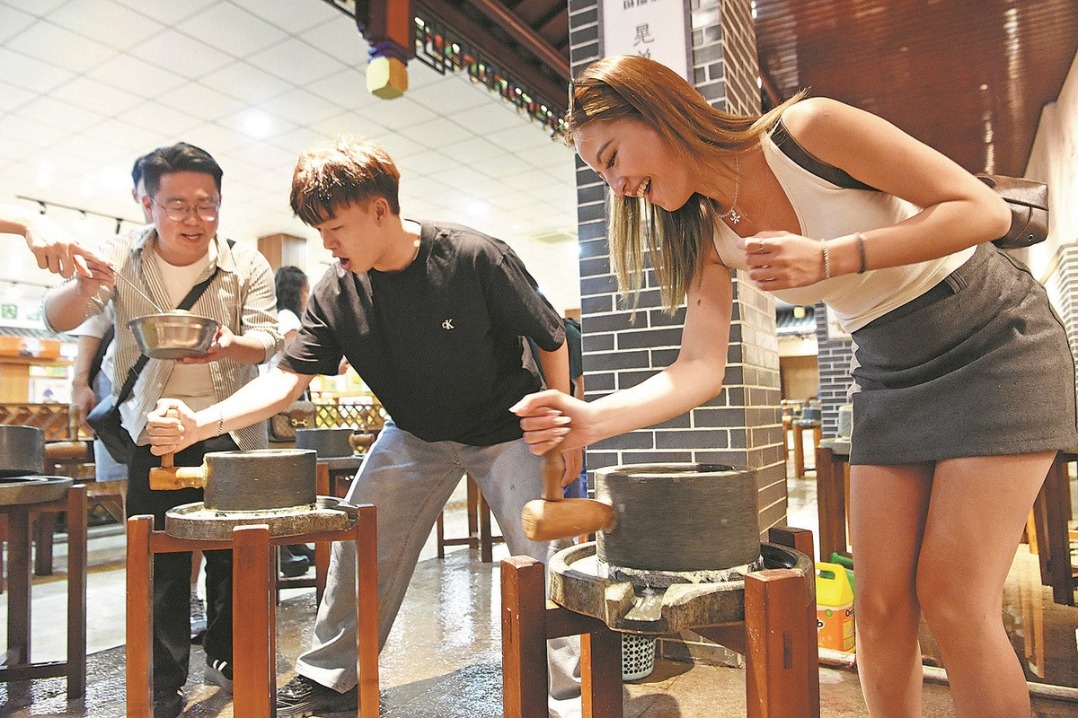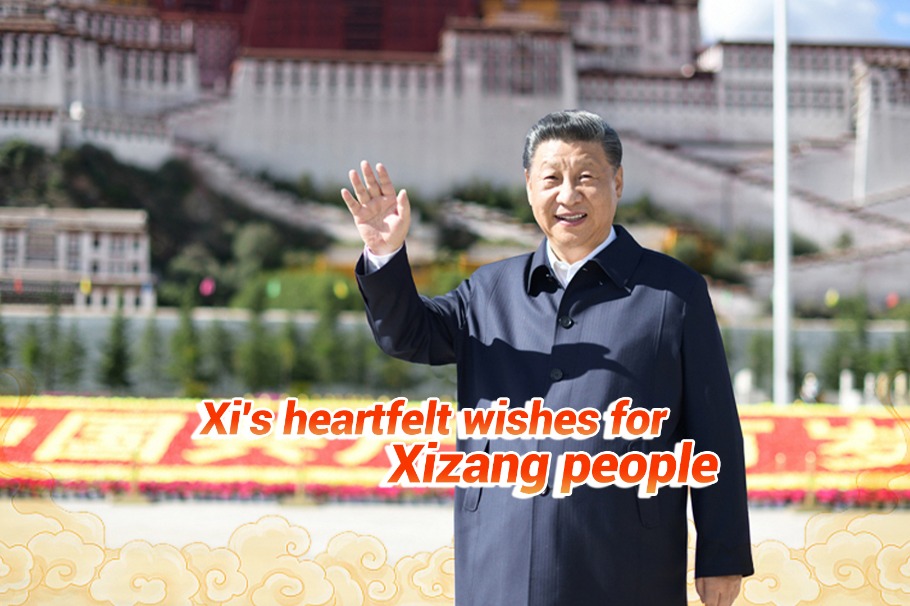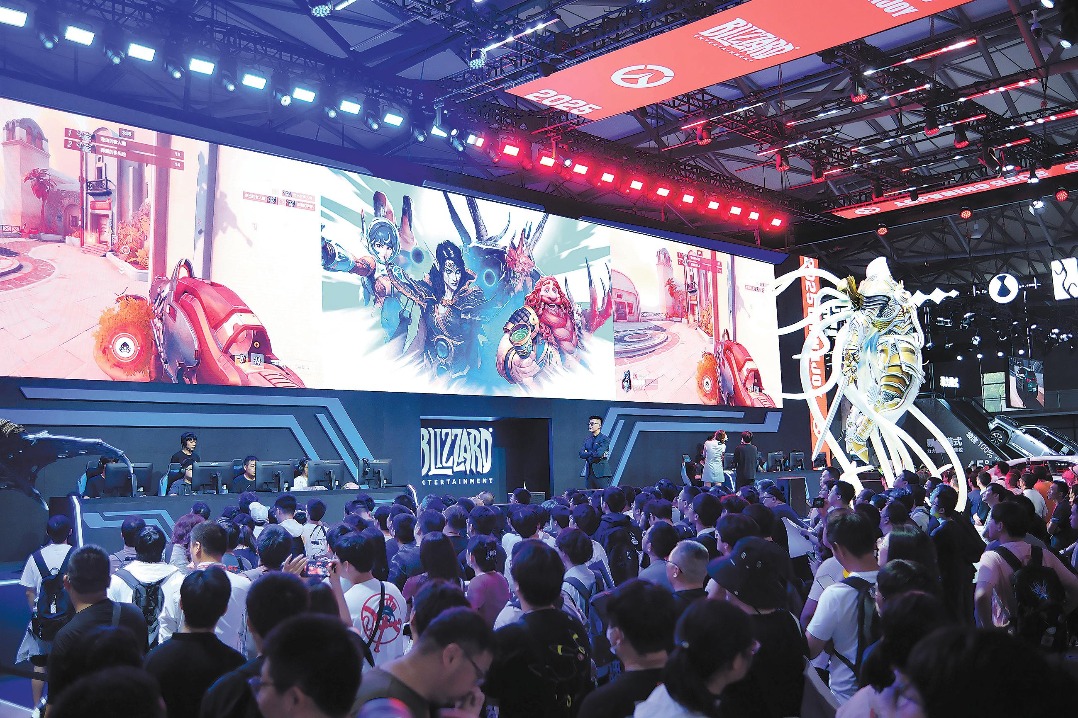Hefei EV power system firm eyes bigger presence
SinoEV operates 'flexibly' to gain more popularity among global client base
By CHENG YU in Beijing and ZHU LIXIN in Hefei | China Daily | Updated: 2024-09-09 09:14

SinoEV (Hefei) Powertrain Technologies Co Ltd, a pioneer of electric vehicle power systems, is steering its global expansion with a flexible manufacturing chain and technological innovations, which position it well to navigate challenges and opportunities in markets overseas.
Wang Yang, president of SinoEV(Hefei) Powertrain Technologies, said: "Our production lines are designed to be flexible, allowing us to meet diverse client needs without significantly increasing operational costs. This ability to innovate and quickly adjust is what keeps us competitive."
Unlike standardized production seen in other sectors, SinoEV's power battery systems are highly differentiated, requiring a manufacturing process that can swiftly adapt to changing demands.

This flexibility, Wang said, is vital for maintaining the company's innovative edge.
"Innovation drives our growth. It's about more than just following trends; it's about setting them."
Founded in Silicon Valley in 2009 and now based in Hefei, East China's Anhui province, the company had provided power battery systems to over 1.5 million EVs both at home and abroad by the end of April this year, with significant progress in both the United States and India.
He said that as a whole, China's new energy industry supply chain is very competitive on the global stage, given its full industry chain that includes research and development, engineering design, manufacturing management and final assembly integration.
"Developing a robust supply chain requires a long period and certain favorable conditions, such as comprehensive policy and a large market scale. It is challenging for some countries to become independent of China's new energy industry supply chain in the short term," Wang added.
According to global consulting firm SNE Research, in 2023, Chinese companies occupied six of the top 10 positions in global power battery installations, with a market share of 63.5 percent.
Currently, for SinoEV, India represents a major growth opportunity, with the company becoming the second-largest supplier of pure EV battery systems in the country by 2023. In the US, the company has partnered with leading construction machinery firms and ventured into electric marine applications.
"To develop overseas, another defining competitive area should be core technology," Wang said.
The company has developed BEST — bipolar encapsulation structure — which ensures that thermal runaway in a single cell does not propagate throughout the entire system, as well as MUST — multifunctional integrated structure — which eliminates modules and reduces components and connections within prismatic cells.
A Frost & Sullivan report showed that the MUST system has resulted in a significant cost reduction of about 10 percent compared to the industry average, and its BEST system applied to ternary cylindrical cells has achieved industry-leading safety standards, with a thermal runaway propagation probability of less than 1 percent, compared to the industry average of about 10 percent.
"We are also developing the next-generation battery systems, after we successfully developed a prototype of sodium-ion battery system designed for entry-level electric vehicles last year," he said.
Amid the so-called overcapacity problem claimed by some Western countries, Wang said that any industry in its nascent stage may require policy encouragement and government subsidies which do not necessarily equate to blind expansion.
"The scale of subsidies evolve over time to encourage companies in the industry chain to continually innovate with technology, while aligning with market demand, and to gradually develop," he said.
SinoEV, for instance, considered expanding production capacity only after taking into account various factors such as its own operational situation, customer management and trends in the new energy vehicle market, he said.
"In terms of the automotive industry chain, each country participates in international division of labor based on its own strengths, and supply and demand cannot be confined to one country," Wang emphasized.
He added that in addition to China, European and US governments are also vigorously supporting their domestic industry chains.
"There should not be a direct correlation between overcapacity and exports. The premise for Chinese companies to expand internationally is that our products must be competitive and meet customer needs. If the products are not competitive, even with high production capacity, they will not be able to succeed in the market."
























